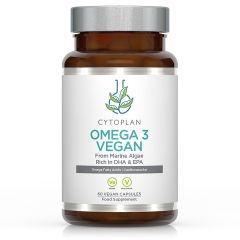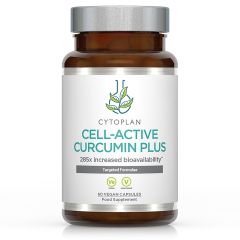How can nutrition help my psoriasis?
Psoriasis is a chronic autoimmune skin disorder that affects around 2 in 100 people in the UK. While scientists do not know exactly what causes psoriasis, it is thought that both the immune system and genetics play a role in its development. In psoriasis specialised white blood cells of the immune system that usually protect the body from invaders, mount an attack on the body’s own skin cells. This threat leads to a rapid increase in the production of new skin cells, which are then forced to the skin surface and begin to pile up, resulting in plaques on the skin surface. Psoriasis can develop anywhere on the body and present as raised red plaques with whiteish scales, which are inflamed, itchy and are prone to bleeding.
Psoriasis is classed as a chronic inflammatory condition that has also been linked to blood sugar imbalances, poor digestive health and high levels of stress. Stress is extremely detrimental to health; it can reduce nutrient intake, increase inflammation and disrupt blood sugar balance, sleep, mood and more, which can all have a knock-on effect on autoimmune and skin conditions such as psoriasis. Some people with psoriasis may also go on to develop psoriatic arthritis, which is an arthritic condition characterised by inflammation, stiffness and swelling of the joints.
The symptoms of psoriasis may come and go with people having ‘flare ups’ and periods of time with no symptoms. Nutrition and lifestyle interventions have been found to help to manage the symptoms of psoriasis and reduce flare ups for many.
Nutrition
A healthy diet is key to reducing inflammation in the body and supporting the health of the skin. A Mediterranean style diet, with an abundance of nutrient rich wholefoods, including plenty of fruits and vegetables, omega-3 rich fatty fish, extra virgin olive oil, healthy wholegrains and good quality protein, can not only support the integrity of the skin, but also help to keep blood sugar levels stable, support the gut microbiome and have overall anti-inflammatory health benefits. Nutrient deficiencies and foods that contribute to poor health, such as high sugar, processed and refined foods, can also affect skin health. Many people find that specific foods such as gluten, dairy or other poorly tolerated foods can trigger a flare up. Those with psoriasis have been found to be more at risk of developing coeliac disease, an autoimmune condition that is characterized by inflammation of the intestinal tract and is triggered by the consumption of gluten containing foods. Therefore, identifying and eliminating possible food sensitivities may help with the management of the condition.
Nutrient support
Supporting the health of the gut is vital for skin health, as what happens in the gut can often show up in the skin! Live bacteria can support the beneficial bacteria in the microbiome by helping to support nutrient levels and the production of beneficial compounds called short chain fatty acids, which can help to reduce inflammation and keep the lining of the digestive tract healthy.
Optimal levels of stress reducing and skin loving nutrients such as selenium, zinc, B vitamins and vitamins A, C and E, are key in supporting the skin from within. The skin has the third highest amount of zinc in the body, making this an important mineral for skin health and wound healing. Vitamin D is another key player in both skin health and autoimmunity, and research has found that many people with autoimmune conditions, including psoriasis, are low in this vital nutrient.
Curcumin, an extract of the spice turmeric has been found in research to improve psoriasis symptoms, potentially due to its anti-inflammatory and antioxidant properties. Omega-3 from fatty fish or in supplement form also has anti-inflammatory effects that can help support the health of the skin and cell membranes. The western diet is very high in omega-6, and this can cause an imbalance in the ratio of omega-3 to omega-6, favouring a more inflammatory picture. Research has found that supplementing with omega-3 can improve this ratio and help alleviate psoriasis symptoms.








